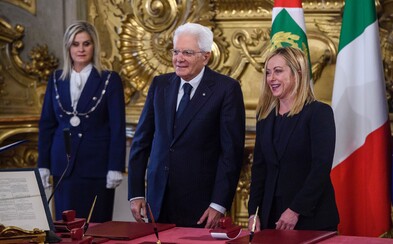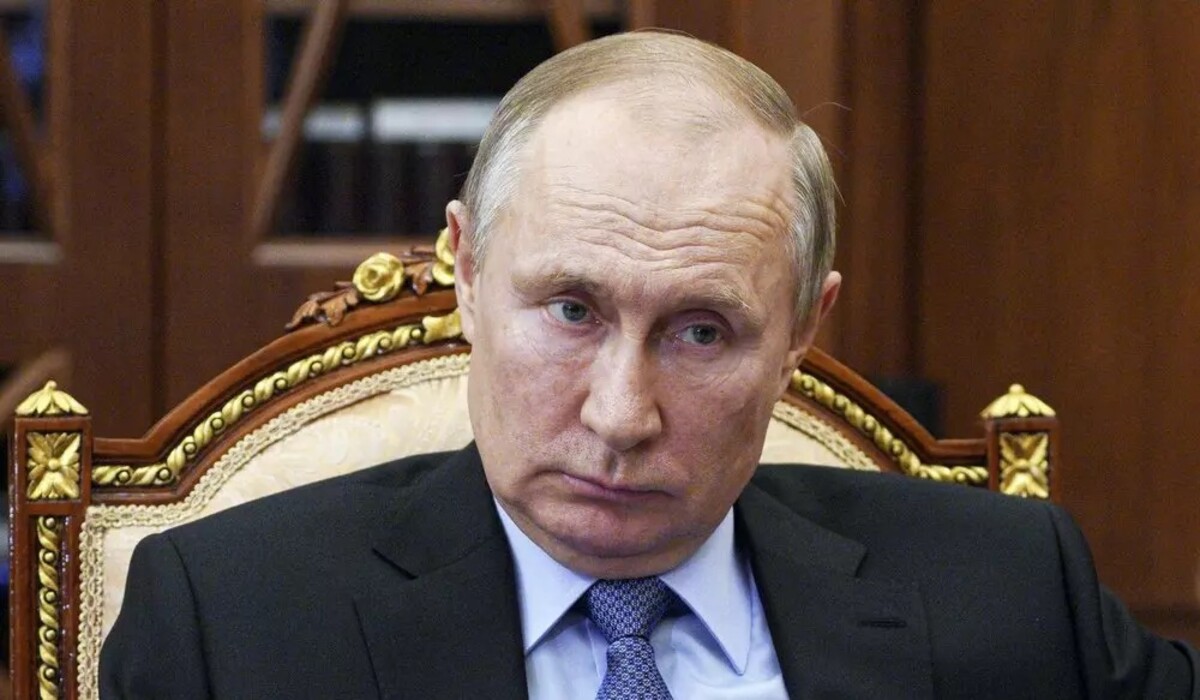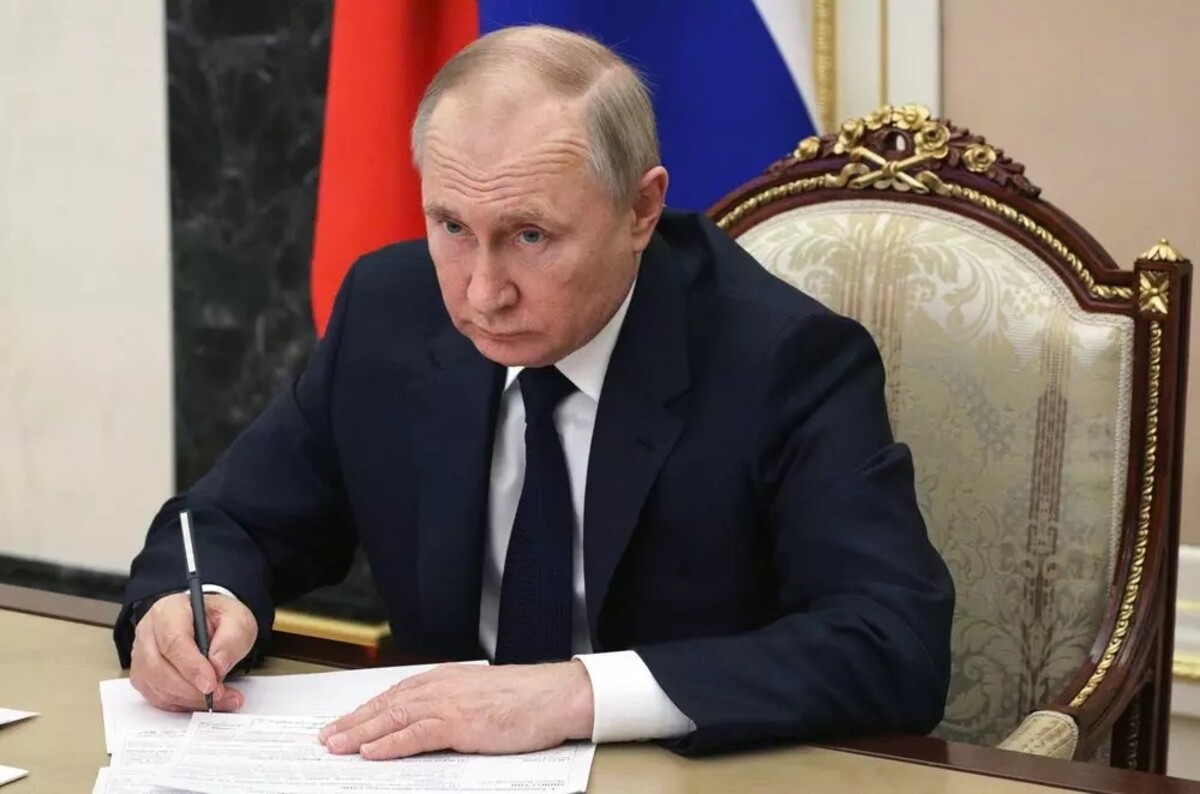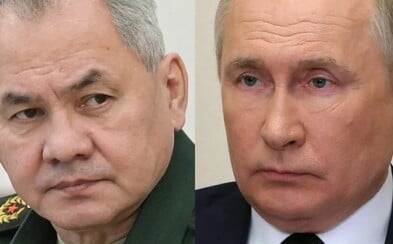 She Likes Fascist Symbols And Stands Against Abortion, LGBT And Migrants. This Is The Italian Prime Minister Giorgia Meloni
She Likes Fascist Symbols And Stands Against Abortion, LGBT And Migrants. This Is The Italian Prime Minister Giorgia Meloni
She Likes Fascist Symbols And Stands Against Abortion, LGBT And Migrants. This Is The Italian Prime Minister Giorgia Meloni
She Likes Fascist Symbols And Stands Against Abortion, LGBT And Migrants. This Is The Italian Prime Minister Giorgia Meloni
What Mental Health Conditions Ail the Russian President? He Might Be Afflicted With a Diagnosis Similar To Nero or Hitler
Not even a hypothetical mental illness would excuse the crimes committed by the Russian army in Ukraine.
If problems persis, please contact administrator.

The bloodshed in Ukraine, launched by Vladimir Putin , not only completely buried long-lasting peace in Europe, but also raised many questions. Lots of questions concerning his mental health. Even those who have had favourable relations with the Kremlin administration in the past, are doubting its sanity now.
A great example of turning sympathies is the Czech President Milos Zeman, who surprised with the statement "I was wrong, the madman needs to be isolated", at the very beginning of Putin's war campaign.
Due to the interest of our readers, we also decided to take a closer look at the mental health of the President of Russia, with the help experts in the field of psychiatry and psychology. However, as psychiatrists Jozef Hašto and Peter Breier rightly pointed out "no doctor can diagnose anyone remotely and publish his alleged diagnosis", so we can only hypothesise.
Silent poker face
At the beginning of "our research", we approached several psychologists studying the nonverbal communication and facial expressions. Non-verbal cues can often reveal much more about politicians, than they would like. This, however, is no danger for Vladimir Putin.
Several experts have explained, that a psychological analysis of his gestures runs into several problems. The first is that as a result of the facial treatments he undergone, his facial expressions can be distorted, and are therefore difficult to evaluate accurately. Secondly, if he is internally convinced that all of his statements are true, not even an expert will see through them. Simply put, if the liar himself believes in his lies, it is impossible to expose him.

Last but not least, we must not forget Putin's work in the KGB. Psychologists believe, that he was trained to control his gestures and movements, which makes reading his subconscious communication cues almost impossible.
Jaroslav Gofjár, chairman of the Association of Former Intelligence Officers, confirmed these suspicions. He claims that "training and experience in the secret services certainly plays an important role in Putin's indecipherability." On the other hand, he adds, everyone who is involved in diplomacy and politics must master certain skills, which definitely include the renowned "poker face".
"If it feels like Putin is losing his 'poker face' superpower over time, and his gestures and facial expressions are becoming more legible, it could still be just a trick he uses to confuse the public or his surroundings, and to obscure his true state of mind, moods or intentions," points out Jaroslav Gofjár.
Power-drunk narcissist?
In addition to nonverbal communication, we can try to judge Vladimir Putin's mental health through his past behaviour and publicly available data. As psychiatrists Jozef Hasto and Peter Brierer emphasise in connection with Putin's personality traits, all disorders can only be considered hypothetically.
Although many people have called the Russian president crazy in recent weeks, experts believe Vladimir Putin is able to perceive reality and control his behaviour. However, part of his personality dynamics does match the description of the narcissistic personality disorder quite accurately. He also displays some paranoid traits or traits associated with so-called syndrome hubris.
Psychiatrist Adam Nemček explained, that narcissistic personality disorder is a disharmoniously structured personality. People suffering from this diagnosis have a significantly distorted picture of themselves. "It lies in an exaggerated sense of self-importance, a deep need for excessive attention and admiration from others. At the same time, it is associated with significant problems within interpersonal relationships due to a lack of empathy," the psychiatrist explained.
Patients with this disorder often require a very specific approach. "Sometimes they only want to 'deal' with people in top positions, such as the head of department or the hospital director," the expert added. According to him, they often use other people to achieve their goals and they are convinced that others envy them, while it is them, who often those around them.
"Narcissistic personality disorder, like other mental health conditions, is biopsychosocial in nature. This means that hereditary disposition plays a role, although not as significant as in paranoid or dissocial personality disorder. Psychological and social factors, such as a certain educational style in early childhood, also influence the development of the condition” said Adam Nemček.
Constant paranoia
According to psychiatrists Petr Bierer and Jozef Hašt, another hypothetical diagnosis may be paranoia. Adam Nemček claims that such features can be identified by their most prevailing manifestations.
"Personality disorder usually manifests in late adolescence and early adulthood. However, we can only talk about personality disorder after the end of personality development. The diagnosis always leads to significant interpersonal difficulties, but often, also to subjective suffering," explained psychologist Adam Nemček, adding that the most dominant manifestations of narcissistic personality disorder include exaggerated self-image, selfishness, inability to empathise, need for special treatment, insatiable desire for admiration and attention.

"These people are often impatient, they don't like to wait if they don't get preferential or special treatment. They often try to humiliate others to make themselves feel and seem more important and significant. If they do not receive attention or admiration, they may experience depressive episodes," said Adam Nemček.
According to him, signs of paranoid behaviour include suspicion of others, inability to forgive insult and the belief, that even some indifferent stimuli are personal and threatening. People suffering from these traits are hypersensitive to stimuli and are extremely protective for their own rights.
"A person who is afflicted with this diagnosis constantly suspects others of trying to endanger their position and affect their sovereign rights. Subsequently, they act with vengeance, always thinking about defence and counterattack, fighting excessively for their own rights, refusing to listen to the opinions of others in the belief, that they will endanger their position," added Adam Nemček.
Is Putin similar to Stalin, Hitler or Nero?
The hypothetical considerations about mental health of Vladimir Putin, brought forth the diagnosis of so-called hubris syndrome. Psychiatrist Adam Nemček explained that this syndrome consists of a specific combination of symptoms, which usually develop in a susceptible, disposed personality during long-term work in high, especially political, positions.
"Syndrome hubris is a so-called acquired personality disorder, which develops only after the above-mentioned circumstances. The basic manifestations include the use of power to enhance one's image or glory, over-engaging in one's popularity and identification with the nation, being subjected to impulses, being prone to dangerous actions and being subject only to the highest instance - judged only by history or god," he added. People like Nero, Hitler, Stalin, but also American President Nixon, who often spoke in a third person, were associated with the aforementioned disorders.

Despite the expertise, we can only speculate about the mental health of the Russian leader. If he really displayed changes in his behaviour in recent weeks, only his closest circle of people and himself know. Maybe no one knows. We do not yet know, if he will join Hitler on the basis of his mental health condition, but he is certainly making history as a similarly cruel man.
If problems persis, please contact administrator.














